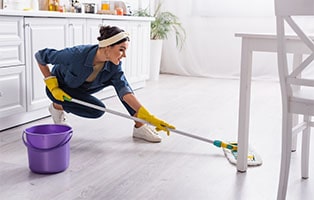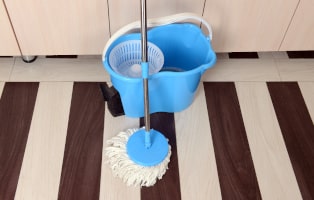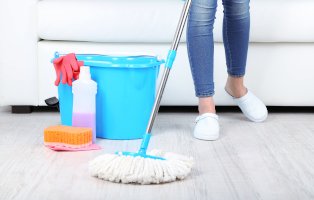Should kids still be taught how to use traditional cleaning equipment such as floor mops in this age of robotic cleaning gadgets?
So there I was, my first week of Army Basic Training. All the new trainees were shoved into a large open bay with rows of bunk beds. We were told by our Drill Sergeants in an intimidating fashion that we would ensure this place stayed clean, or there’d be consequences. In a somewhat disorganized manner, we figured out our resources, what needed to be done, and assigned tasks to people. In a short amount of time, we’d cleaned that place from head to toe, despite being sleep-deprived, confused and overwhelmed.
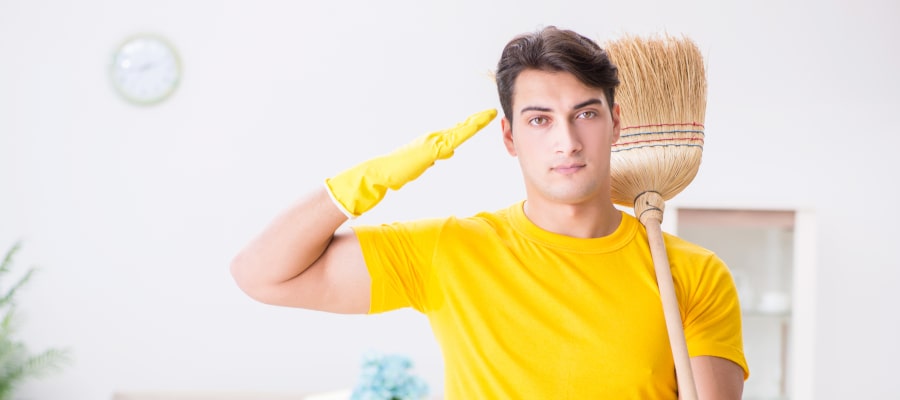
Over the next ten weeks, when we weren’t out in the field training or doing push ups due to some infraction, our time was spent cleaning our bay or the concrete drill pad we had just finished sweating onto. We learned quickly that to be a soldier, you would first become a janitor.
The sweeping of brooms, the spraying of window cleaner and the wringing of mops into buckets became constant background noise, a symphony of cleanliness that kept the room clean from the mud on our boots and the sweat on our brows.
The justification behind this level of cleanliness was to show discipline and prevent grime from creating disease in austere environments. We were able to clean each of our lockers, each windowsill, every bathroom stall and the entire floor, and all with a pervasive pine scent that always brings me back to my time there whenever I smell it even now. We were able to reach everything and get everywhere… as we were required to, lest we wanted to engage in “corrective training”.
Granted, the Army wasn’t where I learned how to handle a mop or a broom.
I’d spent my college years working part time at a state-run liquor store as a clerk, where I learned about the fine wines and spirits we sold to the public. On more than one occasion, a customer or employee (myself included) would drop a bottle, sending liquid and shattered glass everywhere. With a sigh, I’d go and get a mop bucket ready in the back, then wheel it out with a broom and dustpan in my other hand.
Red wine was the worst; it stains the mop and anything else it touches, so unless you wanted red shoes or pants you’d take your time. But it was a part of the job description, and I cleaned up wine, liquor and anything else that got on the floor, in addition to cleaning up at night before close.
All of my janitorial training came in handy earlier this year when my wife and I adopted our newest additions to the family, Boston and Brooklyn. They are Australian Shepherd puppies that were abandoned when they were several months old in a backyard. Though they’re a bit more than a year old now, they’re not one hundred percent house trained, and the shock of a new home, diet and people around them has led to several… accidents.
While I knew how to clean up in general, cleaning up after dogs has a few distinctive challenges that come with it.
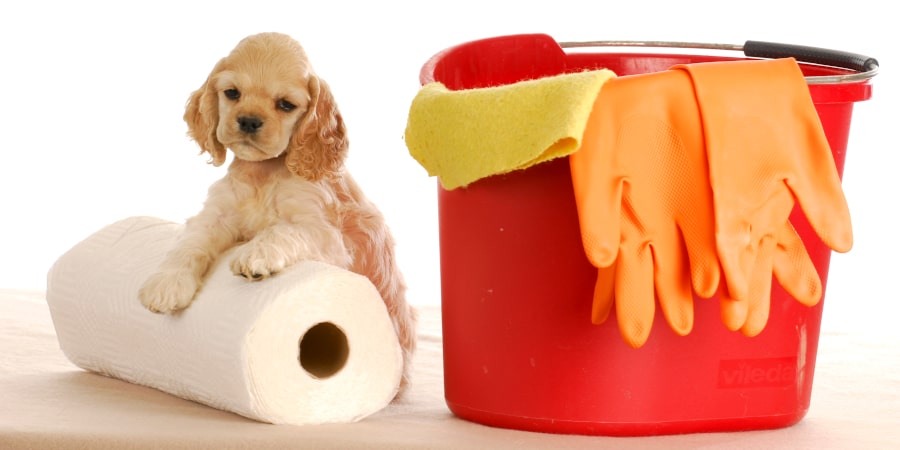
I’ve learned a lot over the past few months about getting stains out of things and using enzyme cleaners to get rid of smells that only dogs smell. It’s been difficult at times – getting up at 5:30am to let your dogs out and finding a huge accident is disheartening – but it’s been worth it to be able to give them a good home.
So, what’s the point of writing down how much cleaning I’ve done over a lifetime? I haven’t talked about cleaning robots once! Well, here’s a few key points from my experiences… in a list!
- First: robotic cleaning gadgets are not a substitute for the knowledge a human has on how to clean things. While there may be tools we use to make cleaning easier (e.g., a vacuum cleaner or the carpet cleaner I used to get the mess out of my carpet after Boston accidentally locked himself in our computer room), there’s going to be a human utilizing it for the foreseeable future. Someone’s going to have to make the decision on what to use and how to use it, especially with specialized issues like pet messes.
- Second: robotic cleaning gadgets are generally very specialized, and do not make up for the Swiss Army knife-like quality of having opposable thumbs and a brain. A Roomba might be able to sweep, but I’ll be surprised if it could clean up the messes my dogs have made. And while I can see a Jetsons-style Rosie the Robot Maid becoming reality in the future, I’m not so confident about that happening within our children’s lifetimes to forego that training.
- Third: robots break and are expensive, humans don’t and aren’t. Which is more cost effective – a robot that is highly specialized, expensive to buy and which you now need to know how to repair, or a human that can just do everything with a little time? Unless you have disabilities that prevent you from doing so, learning how to clean is a good investment as an individual; it means you don’t have to pay anyone or for anything to do a little work.
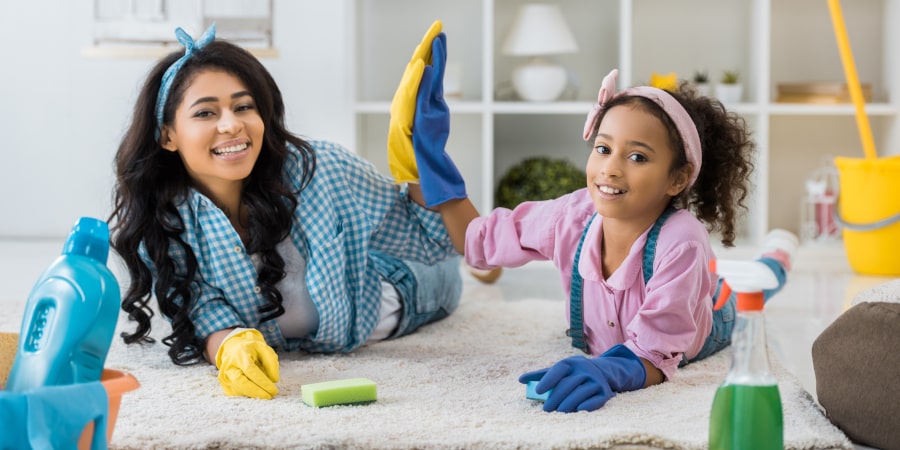
While I know everyone doesn’t want dogs and most people won’t join the Army and find out you’re a janitor now, having the practical skills to clean keeps you from relying on having a fleet of futuristic robots that don’t exist yet or paying someone to do it. Personally, there’s a meditative quality to cleaning that helps make it worthwhile to me. In our fast world, sometimes there’s nothing better than to take the time to slow down for a minute and just clean up.
Essay: Benjamin Piche
Mop Tips & Tricks
